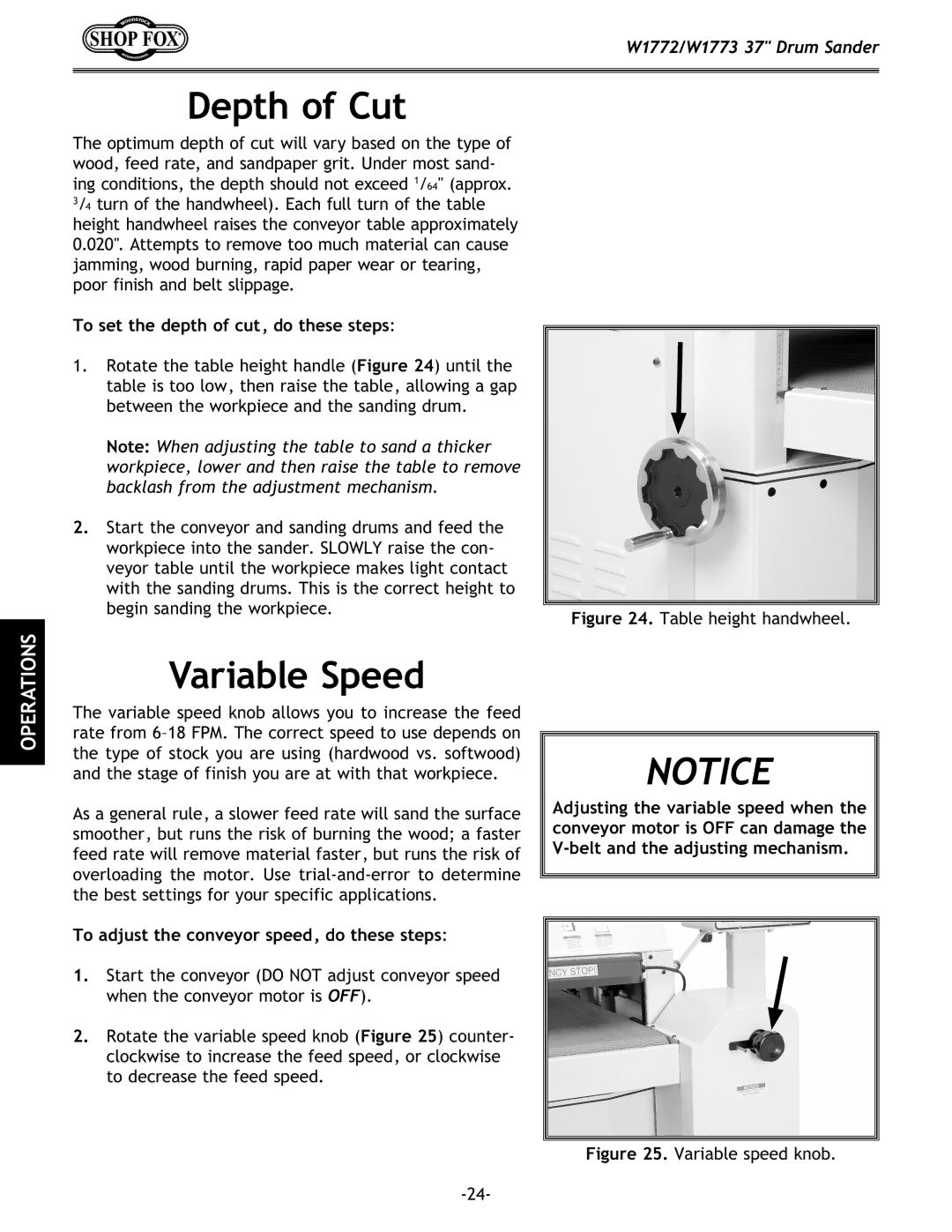
W1772/W1773 37" Drum Sander
Depth of Cut
The optimum depth of cut will vary based on the type of wood, feed rate, and sandpaper grit. Under most sand- ing conditions, the depth should not exceed 1/64" (approx.
3/4 turn of the handwheel). Each full turn of the table height handwheel raises the conveyor table approximately 0.020". Attempts to remove too much material can cause jamming, wood burning, rapid paper wear or tearing, poor finish and belt slippage.
To set the depth of cut, do these steps:
1.Rotate the table height handle (Figure 24) until the table is too low, then raise the table, allowing a gap between the workpiece and the sanding drum.
Note: When adjusting the table to sand a thicker workpiece, lower and then raise the table to remove backlash from the adjustment mechanism.
2.Start the conveyor and sanding drums and feed the workpiece into the sander. SLOWLY raise the con- veyor table until the workpiece makes light contact with the sanding drums. This is the correct height to
begin sanding the workpiece. | Figure 24. Table height handwheel. |
|
OPERATIONS
Variable Speed
The variable speed knob allows you to increase the feed rate from
As a general rule, a slower feed rate will sand the surface smoother, but runs the risk of burning the wood; a faster feed rate will remove material faster, but runs the risk of overloading the motor. Use
To adjust the conveyor speed, do these steps:
1.Start the conveyor (DO NOT adjust conveyor speed when the conveyor motor is OFF).
2.Rotate the variable speed knob (Figure 25) counter- clockwise to increase the feed speed, or clockwise to decrease the feed speed.
NOTICE
Adjusting the variable speed when the conveyor motor is OFF can damage the
